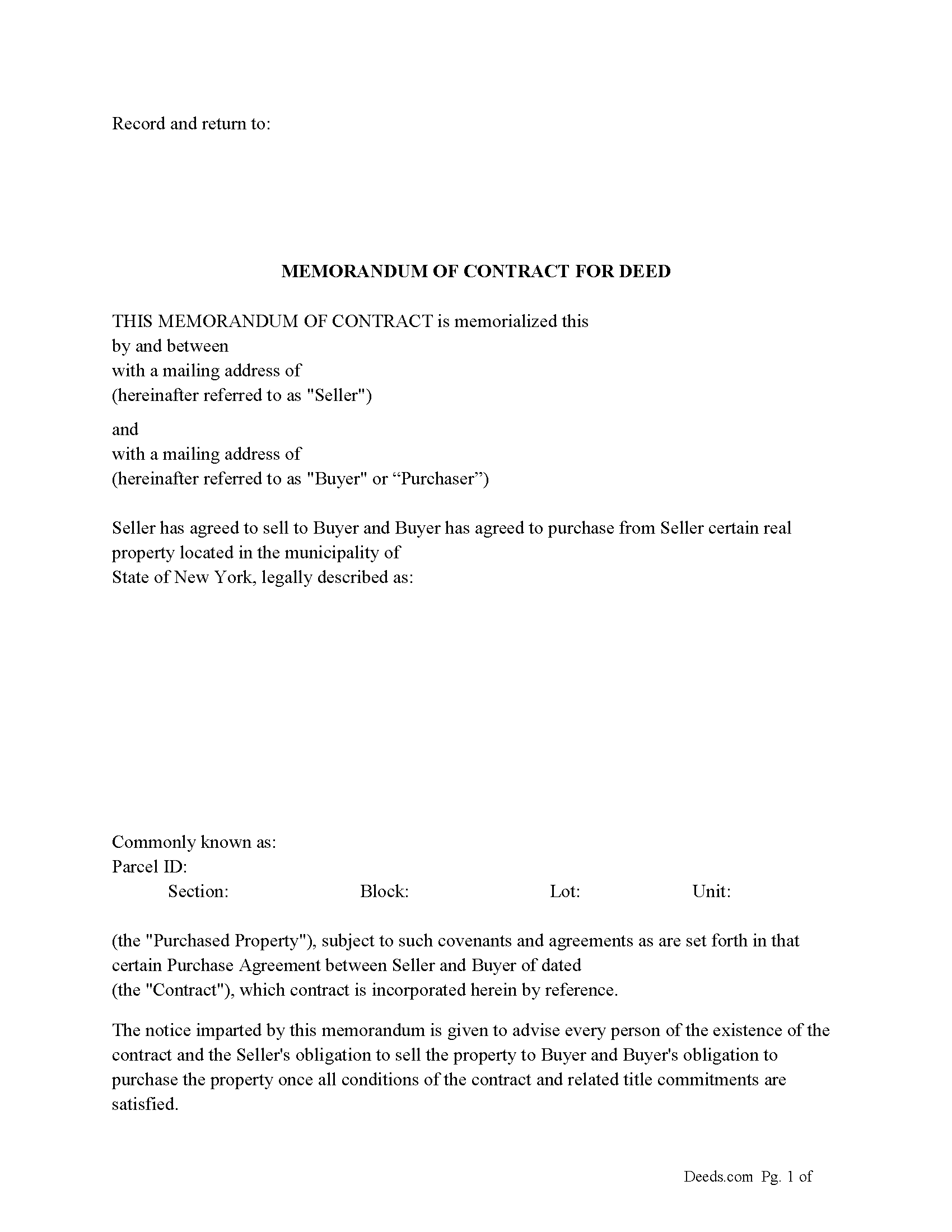Download New York Memorandum of Contract for Deed Legal Forms

New York Memorandum of Contract for Deed Overview

Uses of a Memorandum of Contract for Deed
1. Providing Public Notice:
Recording Interests: The primary purpose of a Memorandum of Contract for Deed is to provide public notice of the buyer’s equitable interest in the property without disclosing the full terms of the contract. Recording this memorandum with the county clerk where the property is located can help protect the buyer’s interest against future claims or encumbrances. A contract for deed, also known as an installment sale agreement, is a real estate transaction where the seller retains legal title to the property until the buyer completes payment of the purchase price.
2. Protecting Buyer’s Interest:
Priority of Claims: By recording the memorandum, the buyer establishes a public record of their interest in the property. This can help prioritize the buyer’s interest over subsequent purchasers or creditors who might try to claim an interest in the property. For instance, if a buyer is making substantial renovations to the property, recording a memorandum ensures that their interest is recognized and protected, even if the seller encounters financial difficulties or other legal issues
3. Simplifying Future Transactions:
Facilitating Title Searches: When a memorandum is recorded, it shows up in title searches, which can simplify future transactions by making it clear that a contract for deed exists. This is particularly important if the buyer plans to sell or refinance the property before the contract for deed is fully executed.
4. Legal and Financial Considerations:
Ensuring Enforceability: Recording a memorandum can enhance the enforceability of the contract by ensuring that there is a documented and publicly accessible record of the buyer’s interest. Lender Requirements: Some lenders may require a memorandum of contract for deed to be recorded as part of their underwriting process. This can be important if either party needs financing based on their interest in the property.
5. Dispute Prevention:
Avoiding Future Disputes: By clearly documenting and recording the existence of the contract for deed, both parties can avoid potential disputes related to the buyer’s interest in the property. This clarity can be crucial in preventing legal conflicts down the line.
Situations When a Memorandum is Specifically Advised:
Long-Term Contracts for Deed: When the contract for deed has a long duration, it is especially important to record a memorandum to protect the buyer’s interest over time.
In cases where the transaction involves multiple parties or complex terms, a memorandum helps clarify the buyer’s interest and can simplify the resolution of any issues that might arise.
File the notarized memorandum with the county clerk’s office where the property is located. Pay any applicable recording fees.
In conclusion, recording a memorandum of contract for deed is a crucial step in protecting the buyer’s interest in the property. It provides public notice, helps prevent disputes, and ensures enforceability. By following the outlined steps, buyers can safeguard their investments and facilitate smoother future transactions.